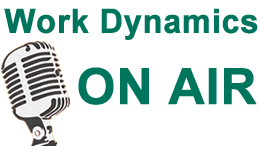News
DO'S AND DON'TS FOR INTERVIEWERS - WHAT BOOKS DO NOT TELL YOU!
By: Aleeshah Nujjoo (Masters in Organisational Psychology from the University of Cape Town)
Based on my personal experience, the interview process can be as daunting for the interviewers as it can be for candidates.
A Two-Way Evaluation
Interviewers often forget that while they are assessing candidates and determining their fit for the role and the company, the latter are also evaluating whether this is the company they would want to work for. This may be particularly true for candidates who are highly marketable. As an interviewer, you want to create the best image of your company and make it an employer of choice. Think of it as a long-term strategy. Creating a good impression now irrespective of whether the candidate is successful or not, means creating a lasting impression as a future employer or even service provider. Unsuccessful candidates could well be employees you would like to have once in the future. They may also be future clients or customers. Even though you are seemingly in the stronger position as the interviewer, represent your brand and sell the company image at all times!
The Three P’s
Being Prepared, Professional and Punctual obviously applies to the candidates but what about the interviewer? Being unprepared or late may affect how candidates respond to questions, particularly if the candidate is nervous. With the inclusion of assessments and multi interviews, the process is tedious for candidates and making them wait makes them more apprehensive.
Being unprepared may result in the interviewer not gathering sufficient information or unconsciously assessing the candidate unfairly. Remember that preparation for the interview process goes back to when you first started screening for the positions, which means you knew what you were looking for and therefore what questions to answer. Prepare yourself fully, especially if you are new to the interviewing. Try doing some dry-runs with colleagues to see what works and ask for feedback. Also, be consistent throughout the interview process. This will ensure fairness towards candidates while allowing you to fairly see who stands out for the role.
Not respecting the 3P’s may cause you to be perceived as quite unprofessional, which damages the company’s image.
Engage
As an interviewer, engage with the candidate and show interest in what they are saying. Demonstrate active listening by using the examples they give you to tap into the next question, particularly during structured interviews. Long interviews can be draining. At times, interviewers tend to jump questions or quickly move onto the next one almost in a ‘robotic’ fashion, without incorporating the responses from the candidate. Engaging with the candidate demonstrates that you show an interest in not only what they can do and how can they add value to the role, but also who they actually are. By engaging and showing interest in what the candidate is saying may assist in revealing their personality and bring the best out of them. While you want to assess their fit for the role and the company, you also want to get to know the “real” person sitting on the other side of that table.
Use up-to-date techniques
Lastly, ensure that the interview techniques you are using are up-to-date. Nowadays there are many new techniques, for example covert interview questions used to dampen social desirability. Explore your options and research the techniques being used by top companies in your industry. Be innovative and conduct your interview in a way that reflects your organisational culture and values. This may well provide you with valuable insights about candidates who might “connect” with the culture of your organisation.
About the Author
Aleeshah Nujjoo has a Masters in Organisational Psychology from the University of Cape Town. She is passionate about her field and also has background in change management. She is currently completing her internship to qualify as a Psychologist at Work Dynamics.





























